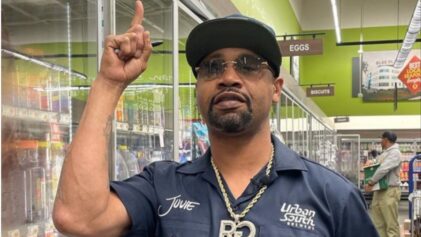In the aftermath of Hurricane Katrina in 2005, one of the most destructive storms in American history, hundreds of survivors who worked in the cafeterias of New Orleans’ schools were further victimized by the subsequent loss of their jobs. In March of 2006, mere months after the hurricane, thousands of teachers and school services personnel were fired as the state took control of the schools from the local board elected by the city’s Black majority and converted them into charters.
Into this void rushed the private contractors who descended upon the struggling city, including Volunteers of America, a nonprofit Christian multimillion-dollar organization and ministry that runs hundreds of human services, housing and healthcare programs in 46 states.
By 2016, 92 percent of New Orleans students attended charter schools — the largest percentage of charter public school students by district in the nation. This privatization of schools also meant that many of the predominantly Black and female food services workers were now forced to compete for lower wages while commonly losing sick pay, health care and having to work extra hours without any pay. Food service workers are the lowest paid members of America’s service class, averaging less than $25,000 a year, and New Orleans’ food workers are among the lowest paid in the country.
“Pre-Katrina, these workers worked for a public entity, the Orleans Parrish school system, so they received a pension, vacation days and they were treated such as an employee of the state,” said LaTanja Silvester, president of SEIU 21 LA, the local chapter of the Service Employees International Union.
The subsequent firing of teachers and the dismantling of the state’s largest union landed with a harsh impact on Black female teachers and food services workers, a group Silvester says was once the “staple of our community.” Post-Katrina, continued Silvester, “It’s still mostly African-American women who are providing the food services in the now privatized food industry in New Orleans within the charter school movement, but they are not provided those same benefits that they once had pre-Katrina.”
Pamela Bourgeois, a food services worker for Greater New Orleans’ Fresh Food Factor program, a local division of Volunteers of America, would learn just how lean those benefits could be. “During the beginning of the year, I was in a car accident and I went to submit a claim to rely on what I thought were my benefits at the time and I came to find out there was nothing,” Bourgeois recalled.
“I was working 30 hours a week, which is considered full time,” said Bourgeois. Workers receive wages beginning at nine dollars per hour, and these hours, even when full time, can often be less than 40 per week. “Unfortunately, I found out the hard way there was nothing available to me and nothing that VOA actually did for me,” said Bourgeois, given the lack of sick pay and that only full-time managers and lead workers are offered health care benefits. “So it made me wonder just how much they care or provide for their employees.”
At its website, Volunteers of America — the organization did not respond to interview requests from Atlanta Black Star — stated it is a ministry of service “dedicated to helping those in need rebuild their lives and reach their full potential.”
Dozens of their own food services workers feel they are in need, as they have begun organizing to form a union with SEIU 21 LA. A letter was recently sent from the union chapter to James LeBlanc, the CEO of Volunteers of America of Greater New Orleans (VOA-GNO), after a number of workers reported being intimidated and targeted for their organizing efforts. Crafted to address ongoing complaints of low wages, reduced hours and a lack of safety equipment, the letter stated workers “deserve a safe place to work and a living wage” as well as “a voice at work and the ability to build their union without harassment and intimidation by their employer. We urge VOA-GNO to not use shameful union busting tactics that create an environment of fear and hostility for workers.”
An August post presenting the letter at the SEIU site stated numerous grievances including how employees “worked with out pay to keep the school cafeterias running and to avoid being disciplined for incomplete work. When they started organizing the boss responded by interrogating a union leader and sending her home. The manager spread lies saying that workers couldn’t organize because they were a non profit. The Union filed an unfair labor practice with the National Labor Relations Board and the workers have kept organizing. Since [then] Volunteers of America has held meetings and sent out letters trying to confuse and scare employees, but they have stayed strong.”
SEIU organizer Peter Reed recounted the incident with the union leader. “That day, she had really basic organizing conversations with people about what they like and don’t like about the job and whether they think things should be better,” said Reed. “She was pulled in to the office at some point during the day and asked about her affiliation with the union, and when she stated she was organizing a union, they asked her to clock out and leave.”
Reed said the union organizer’s work location was subsequently changed and her hours were reduced. As a result, the unfair labor practice claim was filed.
Silvester said her organization’s letter has yet to receive a response. “They haven’t reached out to us,” acknowledged the union president, clarifying “the only thing we are asking in the letter is to just give workers the right to organize through a fair process.”
Regarding the “meetings” referenced in the letter, Silvester reported that Volunteers of America “brought their workers together in what we call a captive audience meeting to, in our opinion, intimidate the workers.” She noted the aforementioned unfair labor practice filings and the presence of the company’s attorney at these sessions ostensibly assembled to field worker concerns.
Silvester also said Volunteers of America employees commonly work across the street from food services personnel who are unionized and receive a livable wage, benefits and overtime.
“As a food services worker and a member of SEIU local 21 LA, I see a difference,” said Arlese Ward, who works for a school with another food services provider, Chartwells Dining Services. A shop steward, Ward is the union representative in the workplace who facilitates, mediates and defends the interests of her fellow employees. “Having a union makes a big difference,” she insisted, noting her union colleagues “have benefits, PTO (Paid Time Off) days, a pension and medical benefits. I even have a retirement plan.” In addition, said Ward, “There’s a lot that an employer cannot do to us, and the number one thing I feel with the union is job security.”
It’s the kind of security Bourgeois hopes to enjoy one day soon, the kind of benefits and protections she believes a union will provide. “I think it would be better for us because people will feel they have a voice and that somebody cares and is looking out for them even if they are not able to do it for themselves,” said Bourgeois, adding it would not only support “that they have a voice, but that their voice matters.”

